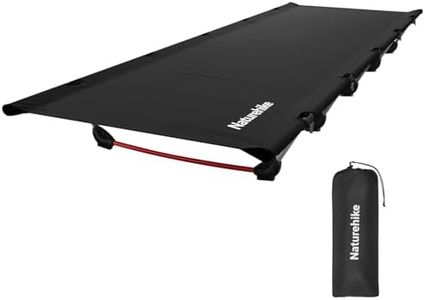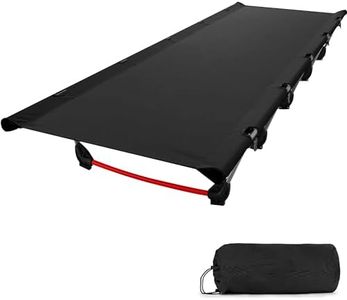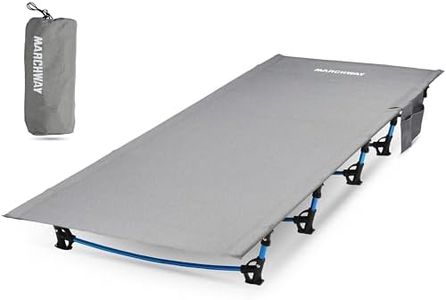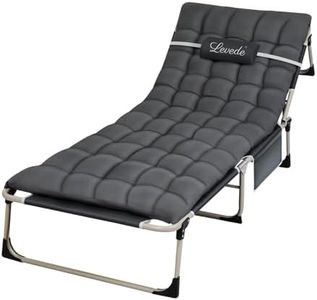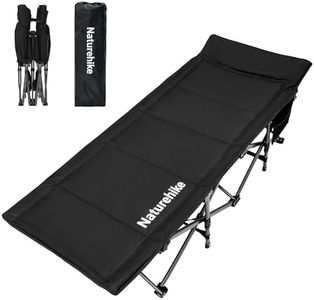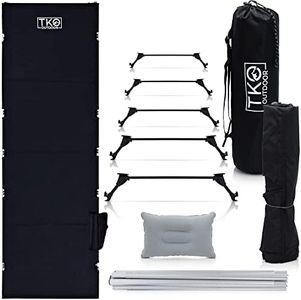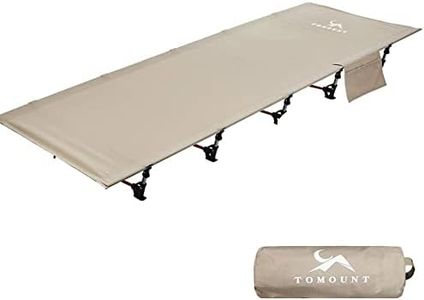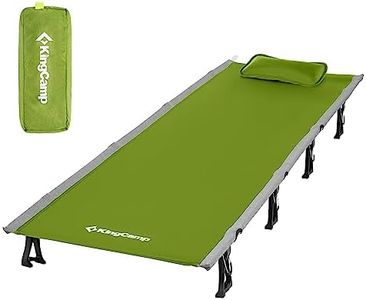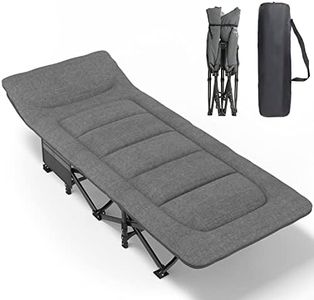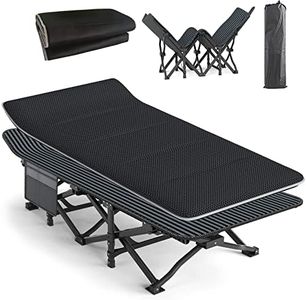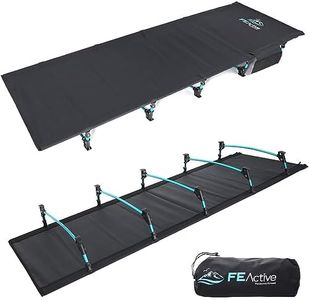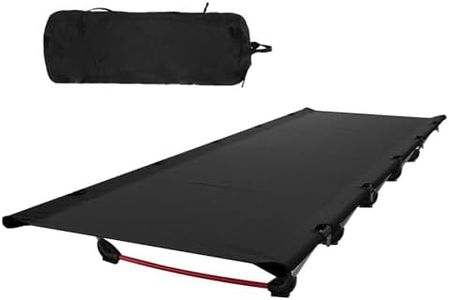We Use CookiesWe use cookies to enhance the security, performance,
functionality and for analytical and promotional activities. By continuing to browse this site you
are agreeing to our privacy policy
10 Best Lightweight Cot For Backpacking
From leading brands and best sellers available on the web.By clicking on a link to a third party's website, log data is shared with that third party.
Buying Guide for the Best Lightweight Cot For Backpacking
Selecting the best lightweight cot for backpacking involves focusing on features that maximize comfort without weighing you down. Since space and weight are at a premium while hiking and camping, it’s crucial to look at cots that offer a solid balance of durability, ease of setup, and compactness. Knowing the main specifications will help you choose a cot that fits your unique needs and outdoor scenarios.WeightWeight refers to how heavy the cot is when fully packed for transport. For backpacking, every ounce matters because you'll be carrying your gear for long distances. Lightweight cots generally range from around two to six pounds. The lighter the cot, the easier it is to carry, but very light models may compromise on comfort or durability. If you’re hiking long distances or want to minimize fatigue, opt for the lightest cot that still supports your needs. If comfort is a bigger concern, a slightly heavier cot might be worth the trade-off.
Packed SizePacked size means how small the cot gets when folded and stored in its carrying bag. This is important for backpackers who have limited space. Compact cots can fit in or on your backpack without taking up valuable room. Cots that pack down under 20 inches in length and about 5 inches in diameter are generally considered compact. If you have a smaller pack or carry a lot of other gear, prioritize a cot with the smallest packed size.
Setup EaseSetup ease refers to how quickly and simply the cot can be assembled and disassembled. Some cots use snap-together poles, while others may have more parts or require more force to set up. If your trips involve frequent camp changes or you set up in the dark, choose a cot with a straightforward setup that you can do without help. Cots advertised as ‘tool-free’ or ‘quick-setup’ often save time and effort.
Weight CapacityWeight capacity is the maximum user weight that the cot is designed to hold safely. Most lightweight backpacking cots hold between 250 and 320 pounds, but specs will vary. Choosing a cot with a higher weight capacity not only ensures safety, but sometimes also means greater durability. Always pick a cot that supports a little more than your body weight to account for gear or shifting positions at night.
Comfort (Height & Fabric)Comfort in cots depends on height off the ground and the fabric used. Height ranges from a few inches up to about a foot. Lower cots are lighter and more stable, but offer less insulation from the cold ground. Taller cots add comfort but can be bulkier. The fabric should be taut and supportive, often made from ripstop nylon or polyester. If you sleep cold, choose a slightly higher cot or supplement with a sleeping pad. For warm weather, a lower, more breathable cot may be best.
DurabilityDurability refers to how well the cot stands up to repeated use and tough outdoor conditions. It’s determined by the materials used, such as high-quality aluminum frames and reinforced fabric. Durable cots might be slightly heavier, but they last much longer. If you backpack regularly or in rough terrain, prioritize cots with strong frames and tear-resistant fabric. Occasional users in gentle environments might get by with a less robust model.
